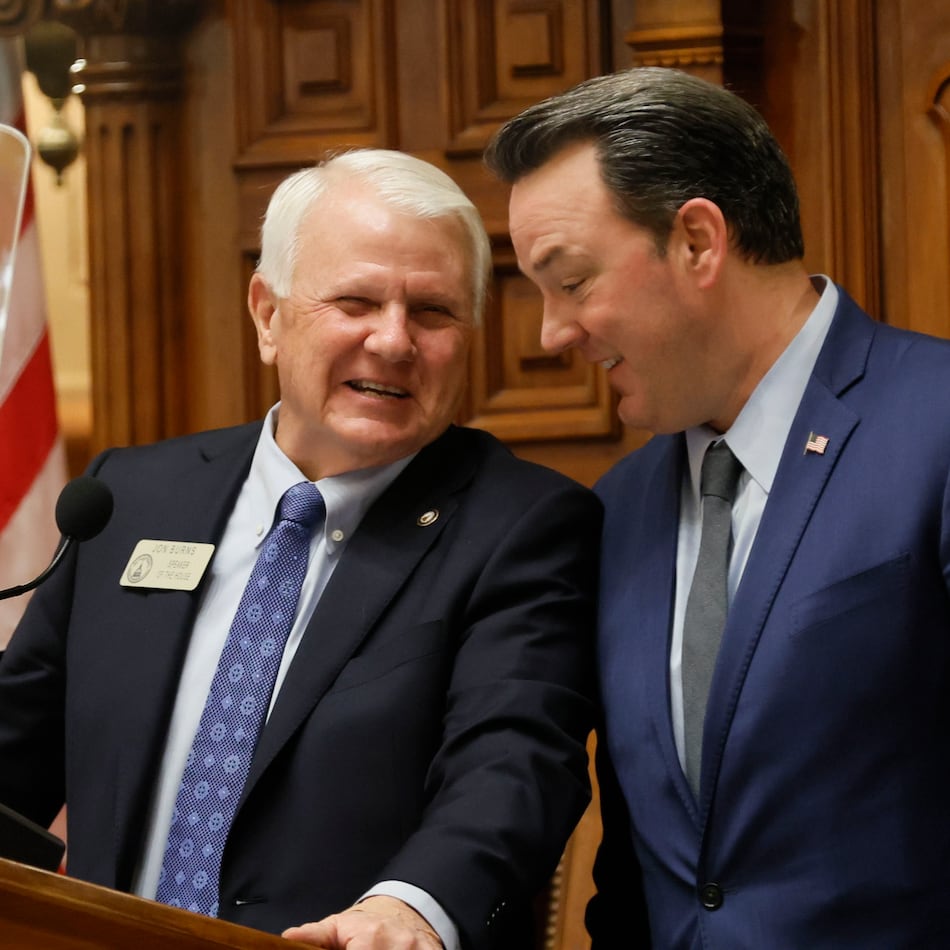Even within the SEC, the spectrum of opinion on whether college football will be played this fall is vast. On one end there’s Florida athletic director Scott Stricklin, who said the Gators are preparing as if they’ll have full stadiums each Saturday. On the other end is Tennessee professor Jon McCullers.
McCullers, an associate executive dean and an infectious disease expert, told a Memphis radio audience last week, “you’re not going to have spectators in Neyland Stadium this year. That’s just not going to happen.”
You'll note: The Gators and Volunteers are both on Georgia's schedule. So, something has to give.
Such range in opinion is what makes it difficult, if not impossible, to predict what is going to happen with football this year. It’s why Georgia athletic director Greg McGarity believes there really is no sense in speculating about it at this juncture.
“I tend to agree with what (Kentucky athletic director) Mitch Barnhart said: ‘There’s a rush to the microphone right now,’ for some reason,” McGarity said Tuesday. “There’s such a range of opinion that it just confuses people. There’s no consistency, not just in the SEC, but in the country.”
That’s a fact.
Oregon Gov. Kate Brown said at a news conference last week that she won’t allow “large gatherings, including live sporting events” to be held “until we have a reliable treatment or prevention like a vaccine.”
Meanwhile, University of Virginia president James Ryan told CBS’s “Face the Nation” this week, if there is a football season, “I don't imagine it will look like normal football seasons, just like I don't imagine even if we have all students back on grounds it will look like a normal semester. It will not be a normal semester next fall.”
» MARK BRADLEY: Can sports be safe without coronavirus vaccine?
Georgia is scheduled to open the season against Virginia on Sept. 7 in the Chick-fil-A Kickoff game at Mercedes-Benz Stadium.
McGarity remains “hopeful” that Georgia will play football as scheduled this fall. But rather than predict what that might look like, he prefers to take a step-by-step approach to getting it under way.
He said it will start with getting athletes back on campus, and it appears some headway is being made to that end.
“We are laser focused on the return of student-athletes to campus for the start up of voluntary strength-and-conditioning training,” said McGarity, who video conferences twice a week with SEC Commissioner Greg Sankey and the league’s other 13 ADs. “When can that happen? Is that six to eight weeks? Is that July? We don’t know. That’s what we’re trying to determine.”
The SEC, along with most Power 5 conferences, suspended all athletic activity through May 31 because of the coronavirus pandemic. But McGarity said league officials are hopeful that on-campus workouts could resume this summer.
“The decision to extend that date or not will be made at the end of the month,” McGarity said. “The question is whether SEC schools could have student-athletes in their facilities doing voluntary workouts. The focus is on all fall sports, but the priority is on football.”
Typically, most SEC football players enroll for summer semester and begin voluntary strength-and-conditioning work in June. Those workouts can be monitored by athletic department staff. McGarity believes that would be a safer alternative for UGA’s athletes than trying to train at home or at community gyms.
Meanwhile, McGarity said that testing for the coronavirus will be “an essential part” of determining athletes’ return.
» MORE: AJC coverage of the coronavirus outbreak
“That’s one thing we’ve really got to nail down,” McGarity said. “The level of testing is going to be very critical. Obviously, the longer we wait, the better that looks.”
Other questions still have to be answered, however. How readily available will tests be? How often should the athletes be tested? What happens in the case of a positive test?
All that falls under the purview of Ron Courson, UGA’s director of sports medicine.
“Ron’s all over that,” McGarity said. “That’s the world he lives in. I’m sure we could probably facilitate it, but I don’t know to what level. I don’t know what the mandate will be on testing. Do you have to do it every day, once a week? Is it just taking their temperature? Do you have to draw blood every day? And that extends to everybody who’s around those kids. So, you have to establish a baseline, and we just don’t know what that is yet.”
Once schools can get athletes safely on campus and working out, then they can start to seriously contemplate how they might be able to pit them against others in competition. The opinions on that front remain wildly varied and divided along state and regional lines.
“We have 50 states, and we might have 50 different definitions regarding mass gatherings,” McGarity said. “Then you have the White House and national trainers’ groups and so on. There are just so many things in consideration. In the end, we’ll probably have to see what the NFL does and go from there.”
The NFL released its full schedule last week as if it would start in September. But discussions continue.
NASCAR will return to competition this weekend, and the PGA Tour announced it will resume in June, both without spectators. The NBA and NHL are trying to decide whether to complete their suspended seasons.
Meanwhile, UGA's athletic department has had one employee diagnosed with COVID-19, the disease caused by the coronavirus. Jeremy Klawsky, a football videographer, recovered at Piedmont Athens Regional Hospital and was released April 16. McGarity said they have not had any other cases.
“We’ve been very fortunate,” he said.
About the Author
Keep Reading
The Latest
Featured



